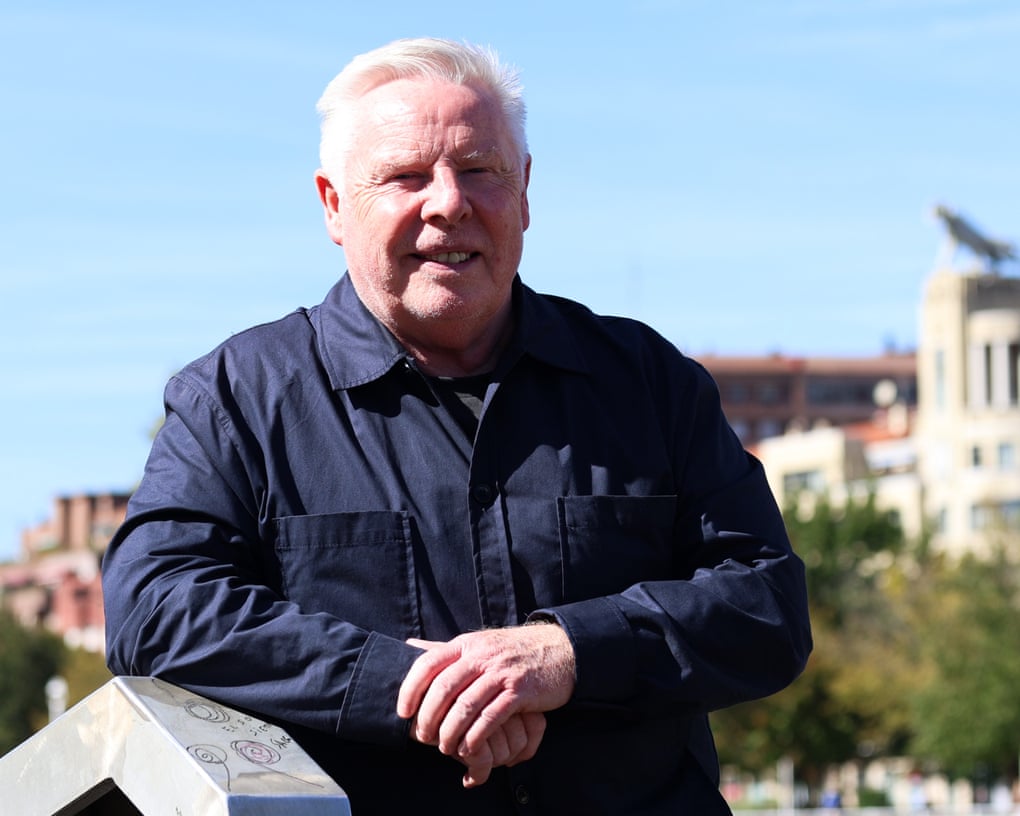Fui a un colegio muy bueno, aunque parezca mentira. Un instituto de élite. Teníamos clases de español, pero yo no lo cursé. Pensaba: «¿Para qué va a necesitar eso un chaval peludo del gueto de Liverpool ?». Y mira por dónde…
Es tarde en Bilbao, de vuelta en el país que lo transformó, y una copa de vino reposa sobre la mesa frente a Sammy Lee, quien vuelve a sonreír. Ha sido una velada emotiva y una noche larga: muchas risas, algunas lágrimas también, hablando de su vida en el Liverpool y de lo que vino después. «Para mí, se trata incluso más de entrenar que de jugar», dice el campeón de Europa y ex asistente de Inglaterra . «Y todo empezó aquí».
Todo empezó con una amistad, una conversación que nunca termina. Así que llévanos a Osasuna . «Por favor», dice Lee. Era 1986 y había dejado el Liverpool, el club del que fue hincha y al que representó durante una década, ganándolo todo. También se sentía perdido cuando Michael Robinson le propuso unirse al club de Pamplona, a 145 kilómetros al sureste de donde se encuentra ahora, y nada más conocerlos, Lee lo supo. «Se nota en la gente, en la buena gente», dice. «Tenía buen olor, buena vibra. Todo».
Sammy Lee con Michael Robinson en Osasuna
Ver imagen en pantalla completa
Sammy Lee con Michael Robinson en Osasuna. Fotografía: CA Osasuna
Michael siempre me apoyó. Me dio mucho ánimo cuando las cosas no iban bien. Me facilitó la llegada al QPR, pero no me adapté: no era el QPR, era yo. Cuando dejé el Liverpool… estaba muy deprimido. Michael no era solo un compañero, un amigo, era familia: leal, leal, leal hasta el final . Hasta 1986, mi camino estaba marcado; él me trazó uno nuevo, vino a mi rescate. Ir a España con Michael fue lo mejor que me pasó después de fichar por el Liverpool. Osasuna fue el comienzo de mi historia.
Another chapter, at least. There are so many stories to tell and, boy, does he tell them well: with humour and humility, a warmth and joy all the greater for getting the chance to return. He is in northern Spain, where he played from 1987 to 1988, invited to Athletic Bilbao’s Thinking Football film festival to speak at the screening of Andy Wells’ moving documentary Two Tribes about Everton and Liverpool in the 1980s.
It isn’t always easy: voice breaking, in Spanish, Lee tells the audience how proud he is of his city; he tells them that he sees a connection to here, something similar in the clubs and their cities, a shared sense of community and identity that reconnects him to his experiences playing for Osasuna. Every time he says here, it is soon apparent, he means there too. And, he explains looking back in a quiet corner of a hotel bar later, in Pamplona he found a new purpose.
Lee celebra la conquista del título de Primera División con los aficionados del Liverpool en el Kop en 1980.
View image in fullscreen
Lee celebrates winning the First Division title with the Liverpool fans on the Kop in 1980. Photograph: Harry Ormesher/Popperfoto/Getty Images
Lee’s first game at Anfield was as a fan against Ajax in 1966; his final game as a player came 30 years later. He joined at 17 but wasn’t a regular for four years. Captain of England Under-21s, many of his international colleagues were playing first-team football but then, he says, “they were at clubs, not Liverpool” and Liverpool were “worth waiting for”. When he left, he was a legend, winner of five league titles and two European Cups. Seven years on, he was back as a coach. By then things were different at a club where he says “they didn’t have a kit man until Gérard Houllier came”, the gear washed once a week by the coaches and stinking. He was different too, another calling found.
“As a player I didn’t really appreciate it all. I understood everything a lot more, the process, when I became a coach. You have a whole squad of players to think about and I like that. Nothing can ever replace playing but I prefer coaching and now appreciate all they did for us: people like Ronnie Moran, Joe Fagan.
“It kills me when people say we weren’t coached. Yeah, Bob Paisley was the ‘grandad’ with the slippers and the [flat] cap, but an example: 1981 [European Cup] semi-final. We’re lining up, ready to meet Bayern [Munich] in the tunnel. And Bob goes: ‘Listen, we’re going to change one thing tonight: [Paul] Breitner. We’re going man-to-man.’ This hasn’t been talked about. ‘What the fuck are we going man-to-man for? And, even worse, it’s Sammy: we’re putting him on Breitner?!’ Fantastic man-management. If I’d been told the night before, I would have been shitting myself and there would have been a mutiny. But I never had time. I went out and he never got a kick … and neither did I. Howard Gayle comes on and runs them ragged.
Paul Breitner, del Bayern de Múnich, bajo la atenta mirada de Lee durante el partido de vuelta de la semifinal de la Copa de Europa de 1981.
View image in fullscreen
